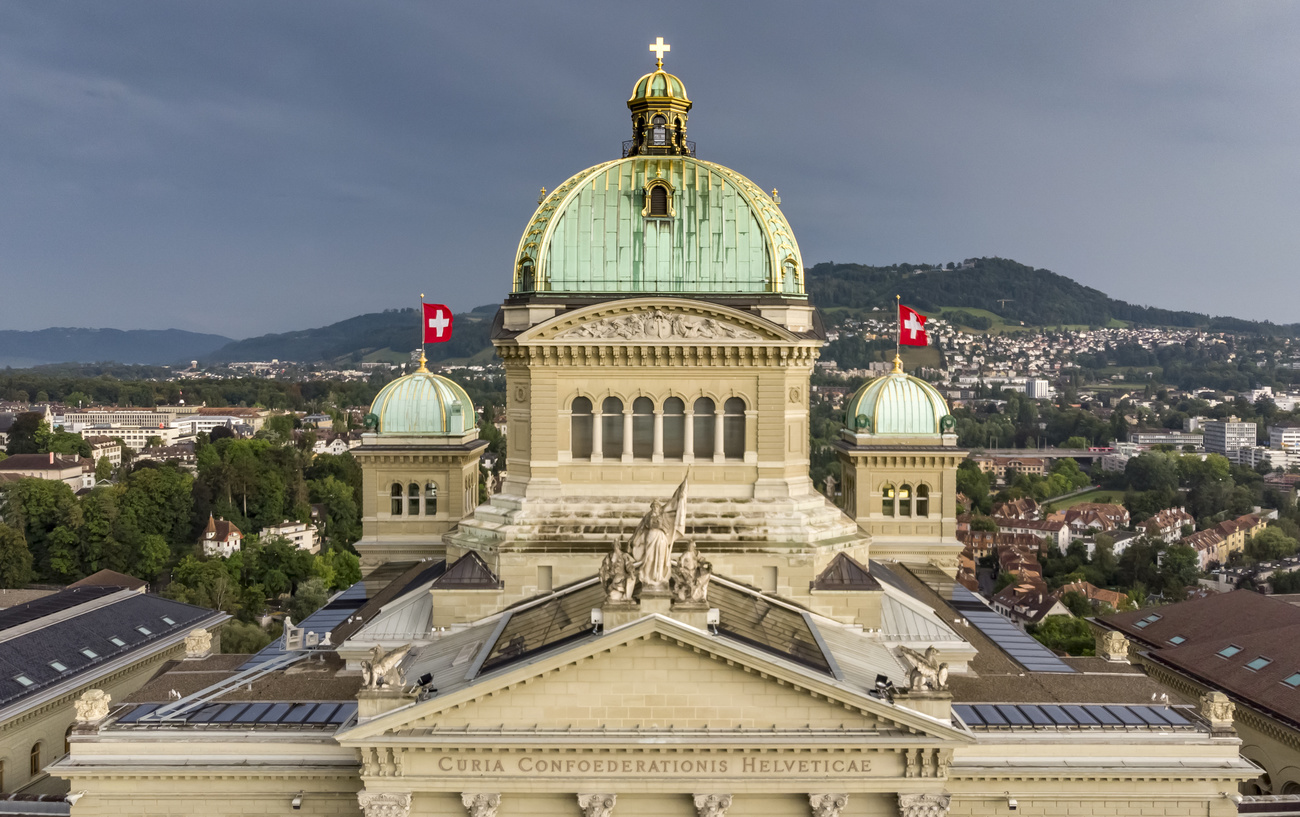
Russia sanctions: Switzerland must do more, says committee

A Swiss parliamentary committee has backed a call for Switzerland to join the international REPO taskforce coordinating western sanctions against Russia. The House of Representatives will debate the issue next month.
Switzerland has not set up a formal task force to implement international economic sanctions against Russia. This makes it all the more urgent to join any international bodies responsible for sanctions, in particular the international REPO taskforce coordinating western sanctions against Russia, to ensure sanctions against Russia are applied actively and fully, says Franziska Ryser, a Green parliamentarian, who filed a related motion.
+ Read more: G7 questions Swiss sanctions “loopholes”
As Switzerland oversees Russian assets and is a leading trading centre for Russian raw materials, it bears great responsibility for the effectiveness of measures that could lead to a rapid end to the destructive war of aggression against Ukraine, says Ryser.
The House of Representative Foreign Policy Committee backed her proposal by 12 votes to 11, with 1 abstention, according to a statement on Tuesday. A majority of parliamentarians agreed that membership of the task force would enable a better exchange of information and better coordination with the other countries participating in the sanctions.
+ Swiss government has no plans to join G7 sanctions taskforce
Opponents argued that cooperation with the task force was satisfactory. Switzerland could also lose its autonomy in the area of sanctions, and the repercussions of possible membership on good offices, sanctions-related data protection and the legal implications were still too unclear, they added.
The REPO working group was set up in March 2022 by the G7 (Canada, France, Germany, Italy, Japan, UK and United States), the European Union and Australia. No other country has joined since then. The Swiss government refused to take part last year.
In February 2023, the Federal Office of Justice informed the Federal Council that the confiscation of private assets of legal origin would be contrary to the Swiss Constitution. Switzerland then came under international pressure. In June 2023, the so-called Helsinki Commission, a body of the US government and parliament, criticised Switzerland’s sanctions policy.
+ Miller: “sanctions are only as strong as the political will behind them”
In a letter, the ambassadors of the G7 countries demanded that Bern cooperate more closely in the search for assets belonging to Russian oligarchs. Scott Miller, the US ambassador to Switzerland, declared that the Alpine country could block more Russian assets. The government disagreed, stating that the amount of assets frozen in Switzerland was respectable by international standards.
In November, the Senate Oversight Committee also urged the government to monitor the implementation of economic sanctions more closely in future.
Switzerland’s House of Representatives will discuss Ryser’s motion at a special session in April.
Adapted from French by DeepL/sb
This news story has been written and carefully fact-checked by an external editorial team. At SWI swissinfo.ch we select the most relevant news for an international audience and use automatic translation tools such as DeepL to translate it into English. Providing you with automatically translated news gives us the time to write more in-depth articles.
If you want to know more about how we work, have a look here, and if you have feedback on this news story please write to english@swissinfo.ch.

In compliance with the JTI standards
More: SWI swissinfo.ch certified by the Journalism Trust Initiative

























You can find an overview of ongoing debates with our journalists here . Please join us!
If you want to start a conversation about a topic raised in this article or want to report factual errors, email us at english@swissinfo.ch.